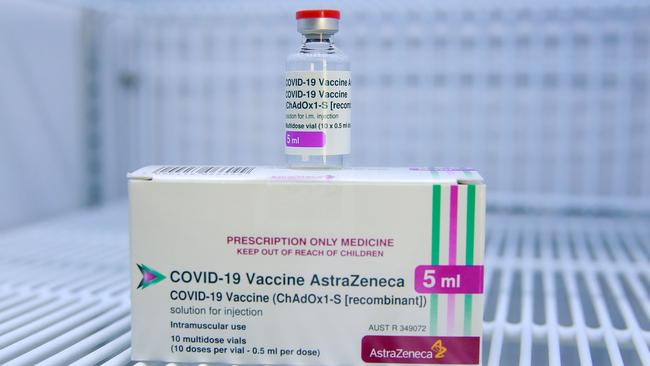Covid-19: AstraZeneca’s bad rap cost many lives, says Oxford scientist
An Oxford scientist who worked on the AstraZeneca vaccine has said that critics of the jab may have caused countless deaths by damaging its reputation.

An Oxford scientist who worked on the AstraZeneca vaccine has said that critics of the jab may have caused countless deaths by damaging its reputation.
“They have damaged the reputation of the vaccine in a way that echoes around the rest of the world,” Sir John Bell told the BBC on Monday.
“I think bad behaviour from scientists and from politicians has probably killed hundreds of thousands of people.”
The British government announced on Monday that another 45 people had died within 28 days of testing positive for Covid-19, bringing the total to 158,363. It reported 57,623 cases, with the seven-day average down 10.4 per cent.
The Oxford-AstraZeneca vaccine was approved in Britain in December 2020 and nearly half of UK adults have received two of its doses. But it has not played a significant part in the booster campaign. Only 48,000 AstraZeneca booster or third doses have been given.
Government figures released on Sunday show that 52.4 million first doses of Covid-19 vaccine have been given, 48.6 million second doses and 37.6 million booster and third doses.
Last April government advisers said that under-30s should be offered alternative vaccines because of the"extremely rare” side-effect of blood clots. By May, the measure was extended to cover all under-40s.
Fears over links to blood clots prompted countries including Germany, France, Spain, Italy, The Netherlands, Ireland, Denmark, Norway, Bulgaria, Iceland and Thailand to pause their use of the jab, while it was never approved in the US.
In late January 2021, hours before the European Medicines Agency approved the vaccine, French President Emmanuel Macron described it as “quasi-ineffective” in the elderly. He said that the jab “doesn’t work the way we were expecting it to”.
Even after European regulators approved the vaccine, public confidence was low, and doctors in France reported throwing doses away after patients failed to attend appointments.
Adrian Hill, director of the Jenner Institute in Oxford, said he believed there was “too much nationalism” in promoting the vaccine. “It was encouraging competition between vaccine types, between countries. That’s the last thing you want in trying to control the pandemic and provide vaccines for the world,” he said.
Against the backdrop of Brexit, Professor Bell said: “I don’t think it made relations with Europe any easier that it was promoted as the British vaccine.”
There were also issues caused by distribution agreements giving the UK priority, which resulted in EU-manufactured doses being sent to Britain while there were shortages in Europe.
The comments were made in a documentary, AstraZeneca: A Vaccine For the World?, to be aired on BBC TV on Tuesday night (Wednesday AEDT). The vaccine was designed to be cheap and for use in areas with only basic infrastructure. It required only basic refrigeration, unlike the freezing temperatures needed to store Pfizer and Moderna’s vaccines.
The Serum Institute in India, which was to produce more than one billion doses for low and middle-income countries, was blocked by its government from exporting vaccines for more than six months when the Delta wave hit.
“Once India shut that door … the sense was ‘We are truly well and truly done for’, because at that point, that was the only hope,” said Ayoade Alakija of the African Union Vaccine Delivery Alliance.
AstraZeneca chief executive Pascal Soriot told the BBC: “You can’t change human beings. They are going to take care of themselves and their families first, their neighbours second and the rest of the world third.
“You would have hoped that export bans didn’t exist and vaccines flowed across the world more freely, but you have to accept the reality.”
The Times



To join the conversation, please log in. Don't have an account? Register
Join the conversation, you are commenting as Logout